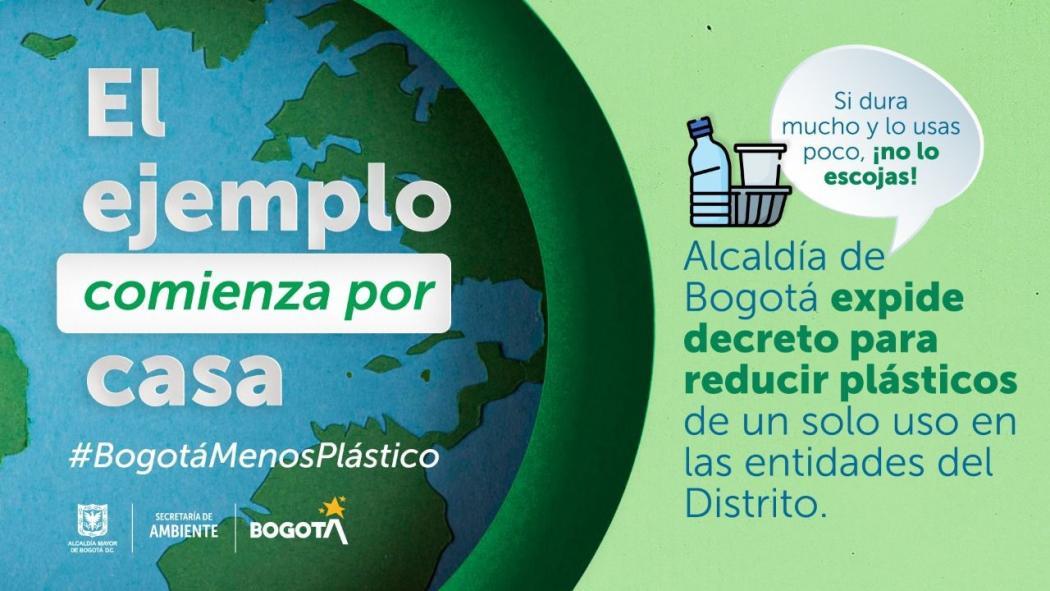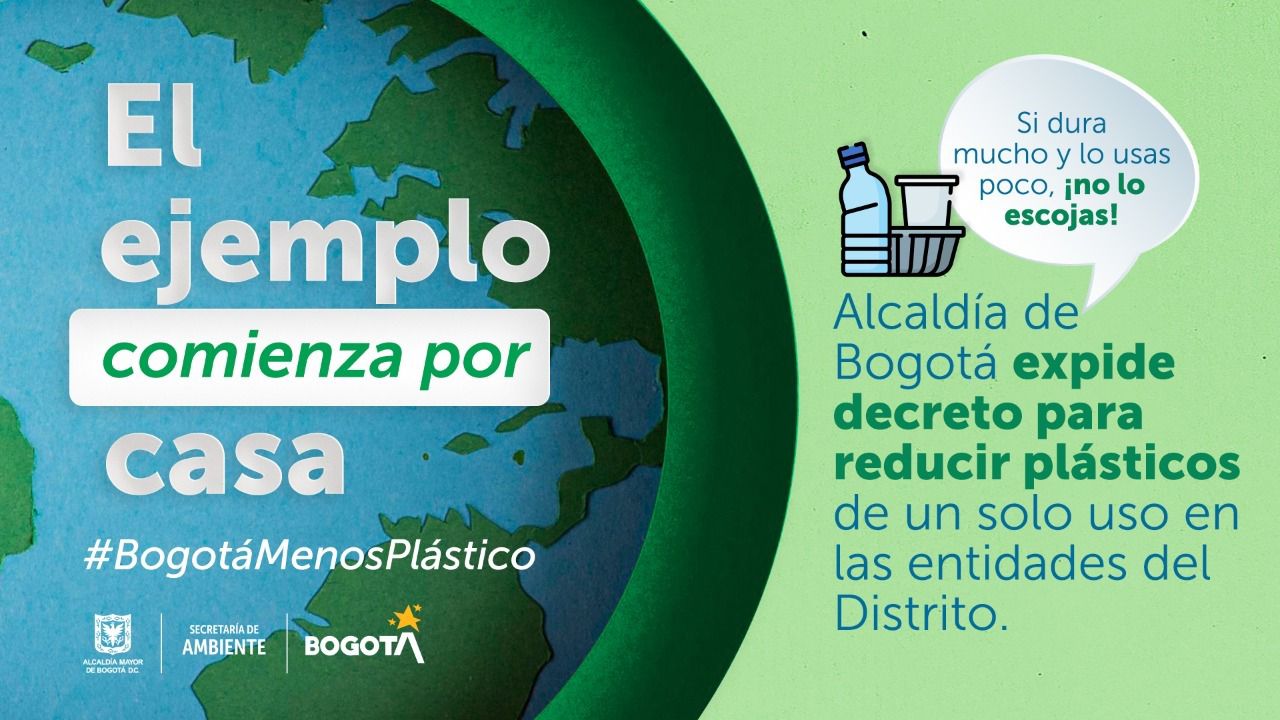Mayor Claudia López signs Decree 317, which establishes measures that will gradually reduce the acquiring and consumption of single-use plastics. This is a collective effort on behalf of all district entities and offices that seek to mitigate the impacts of these substances on the environment.
The idea of Decree 317 is to gradually phase out the use of single-use plastic, this is done by ensuring that every entity corresponding to the district is on the same page. This means that everyone has to pitch in, from local control agencies, to the Personería, Comptroller's Office, the Citizen’s Oversight Committee, even the Bogotá Council and the Mayor’s Office must fall in. The idea is to first reduce the use of plastic and ultimately, to eliminate it altogether. This has the benefit of minimising the generation of waste, but the added benefit of educating the public and setting a good example to be followed.
“We must set the example”, explained the Secretary of the Environment, Carolina Urrutia once the mayor signed the authorization of Council Agreement 808. This decree orders all government entities that work for the district to reduce the use of single-use plastic. “By 2028, we expect to get rid of these elements in every district office”, continued Secretary Urrutia. “This bodes well for our flora and fauna, not to mention the impact it will have on climate change and the reduction of waste build-up in the Doña Juana landfill”.
This is a significant sea-change in how we do things. Offices must now work together to endorse the elimination of single-use plastics. The primary focus must be to reduce the purchase and consumption of single-use plastics and then cut them out altogether by 2028. The secondary benefit of this mandate comes in the form of a re-education that will bring with it the installation of good habits.
Secretary of the Environment, Carolina Urrutia will be in charge of establishing the parameters that each entity must adhere to. Each office will have the option of handling the day-to-day of the criteria in-house.
Through communication strategies and pedagogical campaigns, the Mayor’s Office will work hand-in-hand alongside the Secretariats of Education and Culture, Recreation and Sports, as well as with the Special Administrative Unit of Public Services, to accompany the other offices in the development of this goal.
The offices that stand out for their efforts to the cause will, of course receive an incentive, the conditions of which will be established by the Secretariat of the Environment.
Next, the report delivered by the Secretary for the Environment, Carolina Urrutia:
What is single-use plastic?
As the name implies, ‘single-use' refers to any and all plastic that is intended to be discarded and offers very little probability of further use. Among these are bags, food containers, straws, bottles, mixers, glasses, plates, cutlery, rolls of film and several other elements that appear in District Agreement No. 808 of 2021, which the decree regulates diligently.
A few exemptions must be made in the form of plastics intended for medical provisions, prison supply, the containment of chemical substances that pose risks to human health, and the execution of the School District's Meal Plan (PAE).
“Together, following the examples set by the District, we will work to reduce these elements, which profoundly affect the environment. Only like this, can we help the planet recover,” added Secretary Urrutia.
Plastic in the environment
The production of plastic depends, to a large extent, on fossil hydrocarbons, which are non-renewable resources and that when subjected to combustion processes generate greenhouse gases. In addition, this material is not bio-degradable, but decomposes crudely and often winds up in rivers, streams and other eco-systems where they cause serious damage to the wildlife.
Not least of which, the inadequate disposal of plastics and other waste also causes blockages in the sewer networks and negatively affect the landscape.
According to the United Nations Environment Program (UNEP), nearly 400 million tons of plastic are produced each year. At the current rate, by 2050, this material could be responsible for 20% of the world’s oil consumption.
Measures like these promote good consumption habits that benefit everyone down to the last person. Measures like these have the added benefit of improving the outcomes of the very people they serve. It is essential to reduce the harmful effect that plastic has on the environment, but it is equally important to cultivate a civic culture that resonates positively and grows outwardly for the benefit of all.
Stewardship and civic culture
The new measure should only be applied in the district offices as mentioned above, even so, Mayor López invites the public, regional or national organisations, companies and citizens to start replacing single-use plastics with bio-degradable elements.
This works towards a greener Bogota, collectively, we can reduce the impacts generated by waste and take our environment and its longevity back into our own hands







